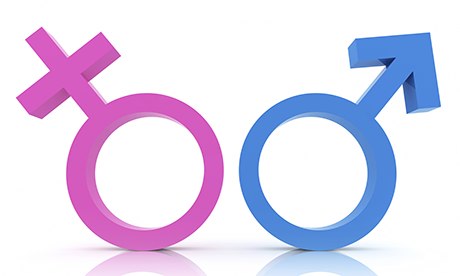 Are women funny? Are they as funny as men? A recent poll provides some good news and some bad news on perceptions of female humor. First the good news: the majority of us (56%) think that women and men are equally funny. Now for the bad news: the remaining 44% were six times more likely to think men are funnier than women. There are certainly plenty of funny women around (think Tina Fey, Amy Poehler and Kristen Wiig, just to name a few), so why do so many think women aren’t funny?
Are women funny? Are they as funny as men? A recent poll provides some good news and some bad news on perceptions of female humor. First the good news: the majority of us (56%) think that women and men are equally funny. Now for the bad news: the remaining 44% were six times more likely to think men are funnier than women. There are certainly plenty of funny women around (think Tina Fey, Amy Poehler and Kristen Wiig, just to name a few), so why do so many think women aren’t funny?
One explanation is that women have been socialized to be unfunny (funniness is apparently unladylike). Therefore, we stereotype women as humorless. At least this explanation leaves open the possibility that women have the same potential as men to be funny.
Another explanation is that men have evolved to be funnier than women. Evolutionarily speaking, men must prove their intelligence to potential mates. (Women just have to look good, so they’ll produce good offspring – no need for intelligence or a sense of humor). In past generations, those men that didn’t have a good sense of humor were less likely to find mates. Therefore, unfunny genes were less likely to get passed on to future unfunny generations. Since the unfunny men got weeded out, the remaining men have evolved to have a better sense of humor than women.
I find it hard to believe that sense of humor has evolved, although I’ll agree that sense of humor does seem more important for men who are looking for a date than for women. I rarely hear my male friends saying they want to date a girl because of her fabulous sense of humor, but women certainly seem attracted to a man who can make them laugh.
Why not test funniness in the laboratory, and, once and for all, establish if women are, in general, funnier than men? Researchers have tried, but the results are inconclusive. Some studies asked participants to rate how funny something was. The thinking here is that people with a greater sense of humor will find more things funny. That’s like judging if someone is an artist, by asking them if the Mona Lisa is a good painting. These tests measures humor appreciation, but not ability to be funny.
In a more recent attempt at measuring funniness, researchers asked male and female subjects to write captions to accompany cartoon images from the New Yorker. They then asked male and female raters to evaluate the captions. Men, they report, wrote funnier captions. Therefore, they conclude, men are funnier than women. I still don’t buy it. Cartoon captions are women’s strong suit. Women have a more interpersonal style of humor. Unfortunately, nobody has tested for that yet.
Given that this question of which sex is funnier remains unanswered, it’s up to women to go out and convince the remaining 44% of the population that we’re funny. Get out there today and make someone laugh.










